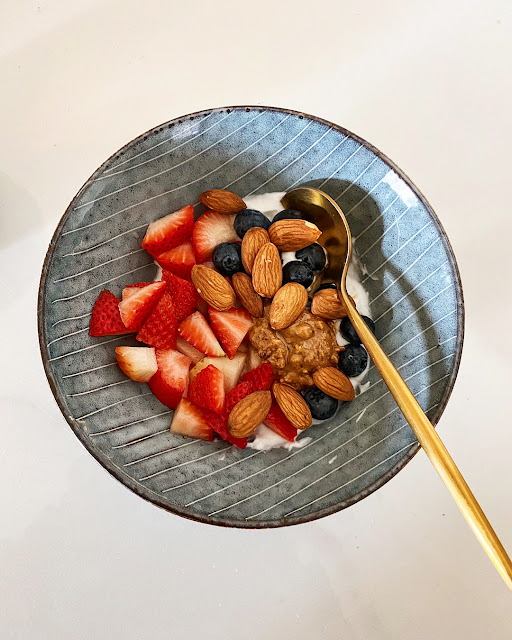Probiotics and prebiotics have been pretty big topics in nutrition over the last decades and although they sound very similiar, the two play a very different role in your health. In short, probiotics are beneficial, and prebiotics are food for these bacteria. I'll explain shortly what you need to know about the two.
Our body houses over 100 trillion bacteria that lives on our skin, in our mouths and most predominantly in our guts. Since we are essentially more bacterial than human, our health really depends on an optimal balance of these microbes - the good and the bad. I’m not sure if you have ever studied about the Hippocrates but they said that all disease begins in the gut and he was right! Gut dysbiosis, also known as the imbalance of intestinal bacteria has been linked to a variety of health conditions such as irritable bowel syndrome, celiac disease, type 2 diabetes and many more. It can cause symptoms ranging from intestinal distress, bloating, diarrhoea to migraines, skin rashes and joint pain.
In an ideal balanced ecosystem, the beneficial, health-promoting “good” bacteria balance out the harmful, pathogenic “bad” bacteria. However, this balance is disrupted all too frequently due to a variety of common lifestyle triggers:
- Diets high in sugar and carbohydrates
- Stress
- Over-usage of antibiotics
- Medications
With clear links between gut health and the immune system, it’s important that you treat your gut microbiome right. While some microorganisms are harmful to our health, there are lots of others that are incredibly beneficial to our overall well-being. Here’s how to improve your gut health naturally.
5 signs of an unhealthy gut
- Upset stomach: There are lots of stomach troubles that can cause health issues – gas, bloating, constipation, diarrhoea and heartburn. These are signs of an unhealthy gut, which means your body is struggling to process food and eliminate waste.
- Unexpected weight changes: If you find you are gaining or losing weight unintentionally (i.e. not on a particular diet), then it could be a sign of an unhealthy gut. An imbalanced gut means your body can’t absorb nutrients, regulate blood sugar and store fat at its optimal levels.
- Disrupted sleep: Are you constantly tired because you can never seem to get a good night’s rest? An unhealthy gut may be the culprit, causing poor sleeping habits or even insomnia.
- Irritable skin: Common skin conditions like eczema may actually be related to a damaged gut, with a poor diet or food allergies increasing the ‘leaking’ of proteins into the body.
- Food intolerance: If your body finds it difficult to digest certain foods (not being allergic to it) then you may have a food intolerance. This digestion issue may be caused by poor-quality bacteria in your gut.
If you suspect that you may be suffering from an imbalance of gut flora, or have any of the signs listed above, you may want to start by focusing on prebiotics and consider supplementing with probiotics to restore the homeostasis of the gastrointestinal tract. as a gentle reminder, probiotics, prebiotics and postbiotics all contribute to your overall gut health, so make sure you are familiar with what they mean before you start altering your diet.
Bottom line - it is super important to keep your gut bacteria balanced for the many aspects of our health and to do this, eat plenty of both prebiotic and probiotic goods as they play a key role in promoting the balance between the good and bad gut bacteria. Check out my other post on prebiotics, what they are and the role they play in our microbiome.
With love,







Post a Comment